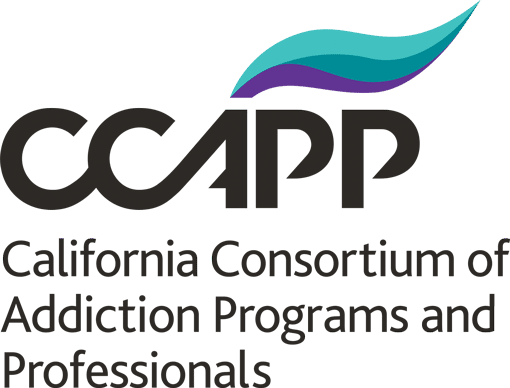Most of us, as Christians, understand that addiction is intrinsically wrong, a crime against the body and spirit. Some of this is influenced by social ideas of stigma and guilt attached to substance abuse. We, as a society, view addicts as weak and as failures. We give up on them. Christians must take a different approach, as dictated by the Word of God and our own moral understanding of the edict to love one another. We must approach addiction with love, sympathy, and understanding if we are to meet both the literal meaning and the spirit of the Word of God.
The Bible is quite clear about the fact that addiction is an act of straying from the path of God. Drunkenness and substance abuse are frequently called out as sinful, because they harm the body, the mind, and the spirit. But, how should you, as a Christian, view drug addiction in this modern world? Whether you or a loved one is struggling with a substance use disorder, this article will walk you through a Christian-based view on addiction and recovery.
“Envyings, murders, drunkenness, reveling, and such like: of the which I tell you before, as I have also told you in time past, that they which do such things shall not inherit the kingdom of God” – Galations 5:21
If you are addicted, you cannot inherit the Kingdom of God. You are not walking in HIs path. You are harming yourself and those around you.
“Nor thieves, nor covetous, nor drunkards, nor revilers, nor extortioners, shall inherit the kingdom of God.” – 1 Corinthians 6:10
If you or your loved one is abusing drugs or alcohol, it is a sin against God. The Bible frequently acknowledges that excesses and vices harm the body, harm the mind, and harm the spirit. Today, we know this to be true at every level. Modern medicine tracks how drug and alcohol abuse literally change the brain to cause changes in hormone and neurotransmitter production and uptake. Drug and alcohol abuse changes who you are on a chemical level, reducing your ability to take joy in the natural world, reducing your ability to find happiness with your friends and family, and centering your entire life around drugs and alcohol. The longer you stay addicted, the more harm you do to yourself and to others.
At the same time, drug and alcohol abuse is not a reason to ostracize or cast out your loved one. While modern social stigma can make this seem like a normal thing, is it not a Christian thing to do. People need love, attention, and care to recover. Ostracizing them pushes them further away from the path of righteousness and removes much of their motivation to change. While you should never put yourself in harm’s way, and you should always have boundaries to protect your safety, your mental health, and your future, it’s important to be there for your loved ones when they need you most.
If you are addicted, it is crucial that you take steps to find and get help. The Bible says that drug and alcohol abuse is a crime against yourself and against God, but it is not the end of the line. There is always redemption and opportunity for change. If someone is addicted, they are in need of redemption.
“And that, knowing the time, that now it is high time to awake out of sleep: for now is our salvation nearer than when we believed.
The night is far spent, the day is at hand: let us therefore cast off the works of darkness, and let us put on the armor of light.
Let us walk honestly, as in the day; not in rioting and drunkenness, not in chambering and wantonness, not in strife and envying.” – Romans 13:10-13
If you or your loved one are struggling with substance abuse, there is always hope, there is always time, and there is always opportunity to change. God has given you trials and tribulations, but he has also given opportunities for redemption and a new life. Christian-based rehab centers can help you to use everything He has given us to cure behavioral disorders like substance use disorder. Modern medicine is a gift from God, and it will help you to recover. Tools like cognitive behavioral therapy and dialectical behavioral therapy help us to learn skills for living in the moment, connecting with the people in our lives, managing stress, and appreciating everything God has given us. A Christian-based center also offers access to sermons, Christian-based support groups like 12-Step, and a group of peers who can talk to you and support you in your quest to repent and to find God.
No one is locked out of the Kingdom of Heaven forever. There is always hope and always the opportunity to repent, to change, and to find your way back. You have never sinned too much to be taken back into God’s embrace. However, you do have to fully repent and to acknowledge your sins, to change your behavior, and to build a better life for yourself and for those around you. Doing so will likely take the rest of your life as you commit yourself to God and to His work.
While it is wrong to abuse a substance, it is equally wrong to turn your back on someone in need of help.
“But the Pharisees and the teachers of the law muttered, “This man welcomes sinners and eats with them.”
“Then Jesus told them this parable: Suppose one of you has a hundred sheep and loses one of them. Doesn’t he leave the ninety-nine in the open country and go after the lost sheep until he finds it?5And when he finds it, he joyfully puts it on his shoulders and goes home. Then he calls his friends and neighbors together and says, ‘Rejoice with me; I have found my lost sheep.’ I tell you that in the same way there will be more rejoicing in heaven over one sinner who repents than over ninety-nine righteous persons who do not need to repent.” – Luke 15:1-7
Whether you are the addict, or you are their family, it is your responsibility to rescue people in need. That applies to yourself, it applies to your family, and it applies to the people in your life. While you cannot always simply step in and change someone’s life, they have to want it, you can offer help, be there, and consistently deliver love, care, and attention. Over time, these will help anyone to find motivation to move into recovery.
Drug and alcohol addictions are complicated from any perspective. For Christians, they are a reminder that life is not always easy, that sometimes we do fall to temptation, and that sometimes we need a lot of help to get back on our feet. As a Christian, you should work to ensure that you and the people in your life have every opportunity to find God, to return to his Righteous path, and to live a happy, healthy life in His Grace.
Christians should view drug addiction as a serious health issue that affects the mind, body, and spirit. It is important to approach those struggling with addiction with compassion, understanding, and a desire to help them find healing and recovery through faith-based support and professional treatment.
From a Christian perspective, substance abuse is seen as a multifaceted problem involving physical, psychological, and spiritual dimensions. Addressing substance abuse requires a comprehensive approach that includes medical treatment, mental health support, and spiritual guidance.
Compassion is crucial because addiction is often accompanied by shame, guilt, and isolation. Showing love and understanding helps break down barriers and allows individuals to seek help without fear of judgment. This supportive environment can significantly aid in the recovery process.
Christian drug rehab centers provide a unique approach to addiction recovery by integrating faith-based principles with evidence-based treatment. These centers offer a supportive environment where individuals can grow spiritually while receiving comprehensive care for their drug and alcohol addiction.
Risk factors such as genetics, environment, mental health disorders, and traumatic experiences like post-traumatic stress disorder can increase the likelihood of developing drug addiction. Understanding these factors helps in creating effective, personalized treatment plans.
Christians should recognize that mental health disorders are medical conditions that require professional treatment. Combining faith-based support with healthcare providers’ expertise can effectively address both the addiction and any co-occurring mental health disorders.
Addressing alcohol abuse is vital in Christian communities to promote overall well-being and spiritual health. By providing education, support, and access to treatment programs, Christian communities can help individuals overcome alcohol abuse and lead healthier, more fulfilling lives.
Christian drug rehab centers assist with drug use and addiction recovery by offering holistic treatment programs that incorporate medical care, counseling, and spiritual support. These centers help individuals build a strong foundation for long-term recovery through a faith-based approach.
Spiritual guidance is important because it provides individuals with a sense of purpose, hope, and strength. For Christians, relying on their faith can be a powerful source of motivation and support throughout the recovery journey, helping them overcome addiction and rebuild their lives.
Christian drug rehab centers offer a variety of treatment programs, including detoxification, individual and group therapy, family therapy, and spiritual counseling. These programs are designed to address the physical, mental, and spiritual aspects of addiction, providing comprehensive care for lasting recovery.
Christians can help by offering non-judgmental support, encouraging individuals to seek professional treatment, and providing spiritual guidance. Being a source of love and understanding can make a significant difference in the lives of those struggling with addiction.
The Christian perspective emphasizes the importance of faith, community support, and professional treatment. Belief in God’s healing power, combined with practical steps and a supportive network, can lead to successful recovery and personal growth.
Entering treatment is one of the most important investments you will make in life. Our Christian drug rehab understands your need for a smooth transition into addiction treatment—after all, it has already been a challenging road. Therefore, we want to mitigate the difficulty of determining how to finance drug abuse rehab. Because we believe the cost of addiction treatment shouldn’t be prohibitive, we have contracts with several PPO insurance providers to help pay for treatment. Here is a list of insurance providers we work with:





Are you ready to get help for you or a loved one? Request more information or get in contact with us using this form. One of our trained professionals will get in contact with you soon to get you started on your road to recovery. If you are ready to take the next step and learn more about how a Christian rehab center can aid in your recovery, feel free to reach out to us at any time. We are here to support you on your journey through drug or alcohol addiction and look forward to walking by your side with faith-based compassion.
3822 Campus Drive
Suite 100
Newport Beach,
Orange County, CA
92600